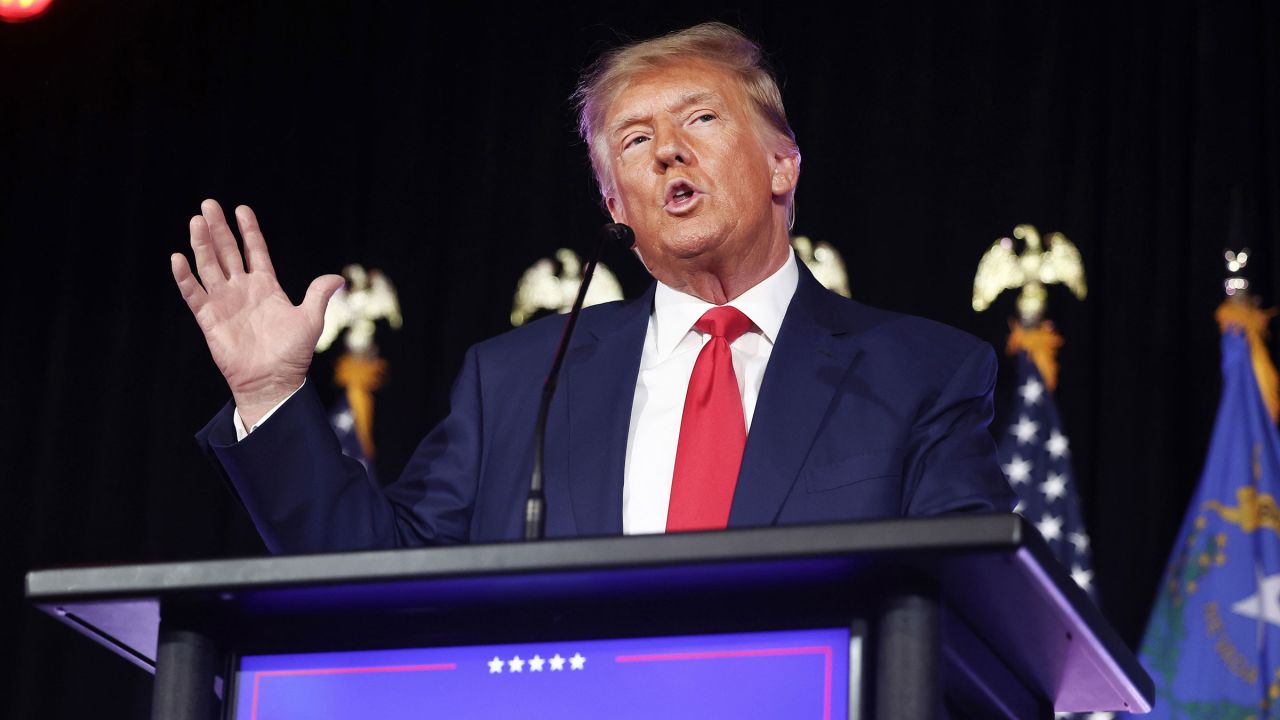Prosecutors in Georgia have aggressively investigated whether former President Donald Trump broke the law while trying to overturn his 2020 election defeat in the hotly contested state.
In shocking phone calls, Trump privately pressured Secretary of State Brad Raffensperger and another official to “recalculate” the numbers and “find” enough votes to let him win.
Frustrated by the lack of fraud investigations, Trump ousted the US attorney in Atlanta. On the day Congress was set to certify the Electoral College results, Trump held an incendiary rally and incited a mob of supporters to attack the Capitol, temporarily delaying the process.
After the insurrection was quashed later that night, the electoral votes were counted and Biden officially became President-elect.
Here’s a timeline of some of Trump’s efforts to try to overturn the election in the state:
December 29: Raffensperger announces that the audit in Cobb County found no evidence of fraudulent mail-in voting.
Trump says Georgia Gov. Brian Kemp and Raffensperger are “stupid,” and calls on them to “allow us to find the crime, and turn the state Republican.” He complains about the signature-matching inquiries. Trump also promotes a conspiracy theory that Raffensperger’s brother works for the Chinese government.
December 30: Trump lawyer Rudy Giuliani speaks to a Georgia state Senate subcommittee about alleged election irregularities. Kemp rebukes Giuliani’s conduct during the hearing.
Trump says Kemp “should resign from office.”
January 2: In an hour-long private phone call, Trump pressures Raffensperger to “find” the exact number of votes needed to overturn Biden’s victory. Trump also suggests to Raffensperger that he should publicly announce that he “recalculated” the election results. Raffensperger tells Trump that the election results were accurate.
During the call, Trump also criticizes the US attorney in Atlanta, Byung Pak, calling him a “Never Trumper” without any evidence. CNN later reported that the call occurred after 18 previous attempts by the White House to call Raffensperger’s office. CNN obtained the audio below from a source who was on the call and had direct knowledge of the conversation. Read the full transcript here.
January 3: Trump tweets about the call, saying Raffensperger was “unwilling, or unable” to answer questions about alleged fraud in Georgia. In response, Raffensperger says Trump’s claims are “not true” and that “the truth will come out.” Later, The Washington Post publishes the full recording of the phone call.
January 4: On the eve of Georgia’s special Senate election, Trump holds a rally in Dalton, Georgia, where he pledges to campaign against Kemp and Raffensperger if they run for reelection in 2022. He also falsely claims the election was “rigged” against him.
January 5: A federal judge rejects an attempt by Trump’s campaign to decertify the election results in Georgia.
January 6: Trump mentions “Georgia” 20 times at a rally near the White House. He cites conspiracy theories about alleged irregularities and says election officials “should find those votes” needed to overturn Biden’s victory. He falsely claims Raffensperger and Kemp are “corrupt” and “defrauded us out of a win.”
During the speech, Trump urges the crowd to “fight like hell” and march to the US Capitol to pressure Vice President Mike Pence and lawmakers to block the Electoral College proceedings. Trump supporters storm the Capitol and violently disrupt the formal proceedings to certify Biden’s victory.
After the insurrection is quelled, several House Republicans unsuccessfully try to challenge Georgia’s slate of electors, falsely alleging that the election was “fraudulent.” Georgia’s electoral votes are counted and Biden officially becomes the President-elect.
See the full timeline here.

















